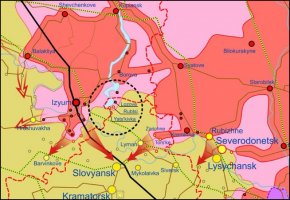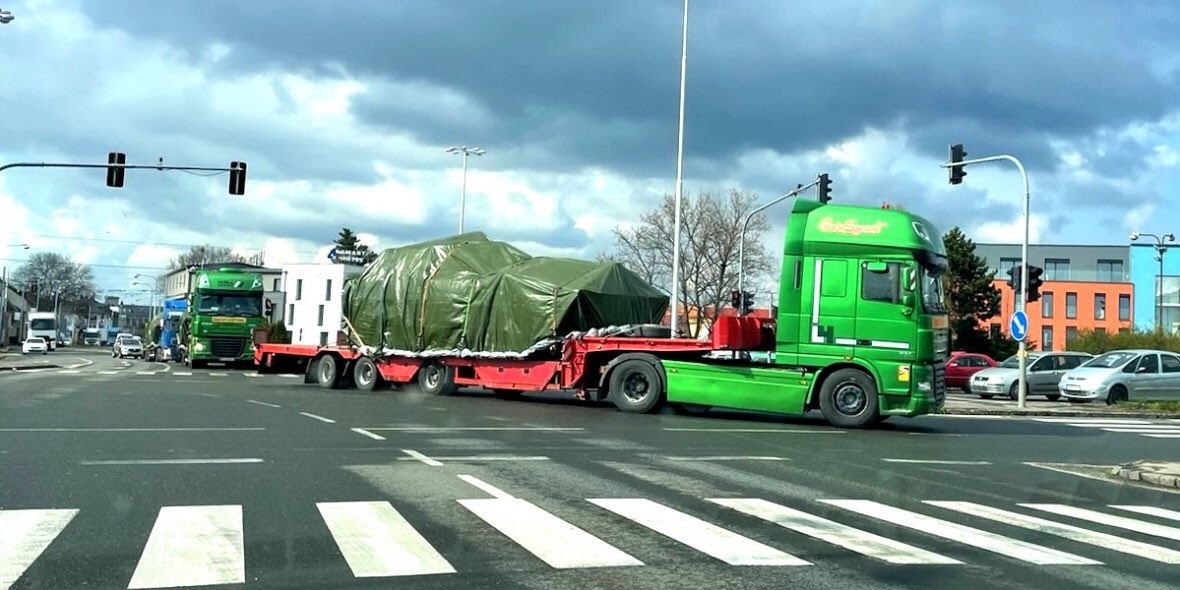Part 1 of 3: An attempt to move beyond ill-informed conjecture
 1. Despite the intense use of Su-34s, artillery, MLRS and missiles, the renewed Russian offensive in the Donbas seems to have yielded negligible gains. This is the physical component is Russia’s military capabilities trying to achieve functional effects on Ukrainian targets. This includes their ineffective use of fighter bombers, training infrastructure, weapons, ammunition, sensors, and comms networks
1. Despite the intense use of Su-34s, artillery, MLRS and missiles, the renewed Russian offensive in the Donbas seems to have yielded negligible gains. This is the physical component is Russia’s military capabilities trying to achieve functional effects on Ukrainian targets. This includes their ineffective use of fighter bombers, training infrastructure, weapons, ammunition, sensors, and comms networks
2. Amid all the noise and ill-informed conjecture, there are some commentators who stand out for their clear-eyed analysis of the geopolitics and of the war in Ukraine — to understand what is going to happen, I follow what both gentlemen say closely, for their insights. I extract a transcript of retired Lt. Gen. Mark Hertling’s comments on CNN.
3. Might be worth a look, for others who are as interested as I am.
Transcript Generated by SnapStream Enterprise TV Search
not a win for Putin. >> That's the Biden administration view. Let's take that question and others to the former U.S. Army commanding general, retired Lieutenant General Mark Hertling. To that first question, mark, you've been a skeptic from the beginning and rightly so really in a lot of cases of Russia's ability here to win the war and to gain the ground they want to gain. Do you take Boris Johnson's view that the Russians can wind the Ukrainians down or the administration's view. >> I take the administration's view but for different reasons, Jim. I'm not going to talk about the domestic politics inside Russia or what Mr. Putin can or cannot accept from his population when body bags start coming home.
What I'm talking about and what I've been talking about from the very beginning is the military capacity of the Russian force. You have this general who is the commander of Russia's central military district, the largest military district, saying -- that's the one that consists of the bulaga and the euros and the siberian district. I met this guy when he was a younger general officer. Saying that the new strategic objective is to get to odesa and beyond. I will say now what I said earlier in this campaign. They can't do it. They do not have the forces to do it. They do not have the capacity to do it.
When you take a look at some of the areas that they're talking about in the south, you're talking about the town of mykolaiv, which they have not taken yet. 500,000 in the population. It's the size of Kansas City, Missouri. Odesa, 900,000. That's the size of Indianapolis. It's 420 miles from mariupol to odesa. They can't sustain the supply lines for that long a time and no matter how many forces we are saying are piled up on the eastern border getting ready to go into the country, they just do not have the size of a force to take over these cities. They've proven that. The Russians have proven they can't take mariupol, which is a pretty big city in and of itself. They've been thwarted there.
[00:02:04]
Even though they have killed a lot of civilians, murdered a lot of civilians, they still haven't controlled the road junctions going in and out of there. So, yeah, I don't buy Boris Johnson's commentary, different commentary than what the white house is giving out. >> Okay. One of the issues in the north around Kyiv, where the Russians failed was -- you highlighted the supply line. They just couldn't get the ammo, the fuel, the food, and the command and control to those troops there. So, they pulled back.
[00:02:35]
The advantage in the east for the Russians is they're closer to the Russian border. They can drive the stuff right across and get to those forces there. Do the Russians have an advantage in the east that they did not have in the north? >> It is certainly a shorter distance. But it's still over 100 miles, Jim. And they don't have the equipment. But most importantly, they don't have the people. We have seen so many Russian soldiers killed. We have seen a lack of leadership on the part of the senior level, middle level, and junior level.
[00:03:05]
They have not proven themselves to be a good combined armed force. So, yes, they certainly have the artillery. But that gets to the package that the administration and nato is providing with Ukraine now in this second part of the war. They can count -- the Ukrainians can counter this with counterartillery fire. Russians cannot maneuver in this area. Ukraine is on their home turf. They have home field advantage on this. They know how to maneuver. They have not been successful
[00:03:36]
yet in the east. They've tried several reconnaissance and force missions in the donbas so far. As Sam mentioned earlier, they have hit with artillery several towns. But their maneuver has not been such where they've taken over towns or they control towns. And in fact, they're not moving all that much. And I personally think Ukraine is playing it very smart, the Ukrainian generals. They're allowing them to think that they're moving just a little bit, and the counterattacks by the Ukrainian forces are soon to come.
[00:04:07]
 1. Despite the intense use of Su-34s, artillery, MLRS and missiles, the renewed Russian offensive in the Donbas seems to have yielded negligible gains. This is the physical component is Russia’s military capabilities trying to achieve functional effects on Ukrainian targets. This includes their ineffective use of fighter bombers, training infrastructure, weapons, ammunition, sensors, and comms networks
1. Despite the intense use of Su-34s, artillery, MLRS and missiles, the renewed Russian offensive in the Donbas seems to have yielded negligible gains. This is the physical component is Russia’s military capabilities trying to achieve functional effects on Ukrainian targets. This includes their ineffective use of fighter bombers, training infrastructure, weapons, ammunition, sensors, and comms networks2. Amid all the noise and ill-informed conjecture, there are some commentators who stand out for their clear-eyed analysis of the geopolitics and of the war in Ukraine — to understand what is going to happen, I follow what both gentlemen say closely, for their insights. I extract a transcript of retired Lt. Gen. Mark Hertling’s comments on CNN.
3. Might be worth a look, for others who are as interested as I am.
Title: CNN Tonight - CNN Tonight Mark HertlingSome food for thought — it’s debatable but certainly a valid view point.
Transcript Generated by SnapStream Enterprise TV Search
not a win for Putin. >> That's the Biden administration view. Let's take that question and others to the former U.S. Army commanding general, retired Lieutenant General Mark Hertling. To that first question, mark, you've been a skeptic from the beginning and rightly so really in a lot of cases of Russia's ability here to win the war and to gain the ground they want to gain. Do you take Boris Johnson's view that the Russians can wind the Ukrainians down or the administration's view. >> I take the administration's view but for different reasons, Jim. I'm not going to talk about the domestic politics inside Russia or what Mr. Putin can or cannot accept from his population when body bags start coming home.
What I'm talking about and what I've been talking about from the very beginning is the military capacity of the Russian force. You have this general who is the commander of Russia's central military district, the largest military district, saying -- that's the one that consists of the bulaga and the euros and the siberian district. I met this guy when he was a younger general officer. Saying that the new strategic objective is to get to odesa and beyond. I will say now what I said earlier in this campaign. They can't do it. They do not have the forces to do it. They do not have the capacity to do it.
When you take a look at some of the areas that they're talking about in the south, you're talking about the town of mykolaiv, which they have not taken yet. 500,000 in the population. It's the size of Kansas City, Missouri. Odesa, 900,000. That's the size of Indianapolis. It's 420 miles from mariupol to odesa. They can't sustain the supply lines for that long a time and no matter how many forces we are saying are piled up on the eastern border getting ready to go into the country, they just do not have the size of a force to take over these cities. They've proven that. The Russians have proven they can't take mariupol, which is a pretty big city in and of itself. They've been thwarted there.
[00:02:04]
Even though they have killed a lot of civilians, murdered a lot of civilians, they still haven't controlled the road junctions going in and out of there. So, yeah, I don't buy Boris Johnson's commentary, different commentary than what the white house is giving out. >> Okay. One of the issues in the north around Kyiv, where the Russians failed was -- you highlighted the supply line. They just couldn't get the ammo, the fuel, the food, and the command and control to those troops there. So, they pulled back.
[00:02:35]
The advantage in the east for the Russians is they're closer to the Russian border. They can drive the stuff right across and get to those forces there. Do the Russians have an advantage in the east that they did not have in the north? >> It is certainly a shorter distance. But it's still over 100 miles, Jim. And they don't have the equipment. But most importantly, they don't have the people. We have seen so many Russian soldiers killed. We have seen a lack of leadership on the part of the senior level, middle level, and junior level.
[00:03:05]
They have not proven themselves to be a good combined armed force. So, yes, they certainly have the artillery. But that gets to the package that the administration and nato is providing with Ukraine now in this second part of the war. They can count -- the Ukrainians can counter this with counterartillery fire. Russians cannot maneuver in this area. Ukraine is on their home turf. They have home field advantage on this. They know how to maneuver. They have not been successful
[00:03:36]
yet in the east. They've tried several reconnaissance and force missions in the donbas so far. As Sam mentioned earlier, they have hit with artillery several towns. But their maneuver has not been such where they've taken over towns or they control towns. And in fact, they're not moving all that much. And I personally think Ukraine is playing it very smart, the Ukrainian generals. They're allowing them to think that they're moving just a little bit, and the counterattacks by the Ukrainian forces are soon to come.
[00:04:07]
Last edited:




















































